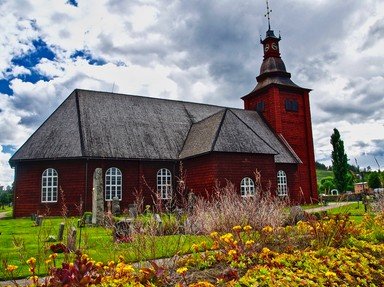Quiz Answer Key and Fun Facts
1. The Great Northern War broke out in 1700 when Sweden was attacked by an alliance of Denmark, Russia, and which country?
2. What was Charles XII, then 17 years old, doing when the news reached him of the first wave of attack by Augustus the Strong, Elector of Saxony?
3. Attacked from three sides, Charles XII dealt with one enemy at a time. In July 1700 his army descended on Zealand, threatened Copenhagen, and forced Denmark to drop out of the war and surrender its conquests in which area?
4. In autumn of 1700 Charles XII moved to relieve Narva, besieged by Tsar Peter the Great. After marching 7 days through rain and sleet, the Swedish army of 8,000 immediately stormed the Russian garrison of 40,000 under the cover of ___, and achieved a sweeping victory.
5. The summer of 1701 saw Charles XII defeat his third enemy. Which river did he cross in this battle?
6. Charles XII had been called many things by his fans and critics. Which of these was NOT a nickname of his?
7. While on campaign Charles XII was known to always carry with him a biography of Alexander the Great and a portrait of whom?
8. The defeated King Augustus sent his mistress, Countess Aurora von Königsmark, to visit the Swedish camp with a secret peace offer. What did Charles XII do with the famed beauty?
9. In 1702 at the Battle of Kilssow Charles XII once again defeated Augustus, but lost a close friend. Who was it?
10. While Charles XII was devoted to chasing Augustus through Poland, Sweden's Baltic provinces were overrun by Tsar Peter's army. Which of these cities fell to the Russians during this time?
11. In 1704 Charles XII persuaded the Poles to depose Augustus and elect Stanislaw Leszczynski to the throne. Before offering the crown of Poland to Stanislaw, he offered to someone else, who declined it. Who was that?
12. In 1706 Augustus was forced to renounce the throne of Poland and recognize Stanislaw as the lawful King by Treaty of Altranstädt. Shortly afterwards another Treaty of Altranstädt was signed. What was it about?
13. While at Altranstädt, Charles XII was paid a visit by which great general?
14. Before turning against Russia, to hide his intention (more as a joke actually), Charles XII asked his men to find him maps from Leipzig to every capital city in Europe. His men hinted at their favorite destination when they put on top of the pile. It showed the route from Leipzig to which city?
15. En route to Russia, Charles XII led an attack on Grodno with the advance guards. Tsar Peter and his main army fled during the night and left the town to the Swedes. How many troops did Charles occupy Grodno with?
16. In September 1708, from the village of Tatarsk, Charles XII abandoned the march on Moscow and turned south towards Ukraine. This change of course proved to be the turning point of the war and of Charles's career. At the time though, it was backed by reasons that might have seemed quite sound. Which of these was NOT a reason for Charles's decision to march to Ukraine?
17. Mazeppa, the Cossack Hetman who cast his lot with Charles XII, seeking independence for Ukraine, was the title character of an epic poem by ___ as well as a tragic opera by ___.
18. At the Battle of Poltava in 1709 the Russian army under Peter the Great completely crushed the Swedes, signaling the fall of the Swedish Empire and the rise of Russia as the dominant power in Northern Europe. Which of these factors did NOT contribute to the Swedes' defeat at Poltava?
19. Having lost his entire army, Charles XII fled to Turkey and set up camp near the town of Bender. Which of these hobbies did Charles pick up to pass what he called "our lazy dog days" in Turkey?
20. In 1714 Charles XII decided to head home. Traveling incognito with a single companion, riding on horseback during the day and in post carriages at night, he covered the entire distance from Adrianople to Stralsund in two weeks. What alias did Charles assume on this journey?
21. After the fall of Stralsund, Charles XII returned to Sweden and settled in Lund, where he studied math and philosophy with professors from Lund University, and invented:
22. On the night of November 30, 1718, Charles XII died while besieging the fortress of Frederiksten, Norway. The alleged weapon he was killed with is now on display at the Fortress Museum of Varberg. What is it?
23. Sir Walter Scott likened Richard Coeur de Lion to Charles XII in "Ivanhoe", which ended with a quote about Charles's death from a poem. Who was the author of the poem?
24. When the Great Northern War concluded in 1721, Sweden had lost her status as a great power and most of her territories. Which of these cities did Sweden manage to keep?
25. Ending on a light note, Charles XII is credited with introducing what dish into Swedish cuisine?
Source: Author
rsh437
This quiz was reviewed by FunTrivia editor
bloomsby before going online.
Any errors found in FunTrivia content are routinely corrected through our feedback system.

